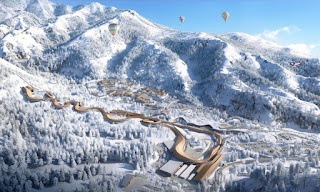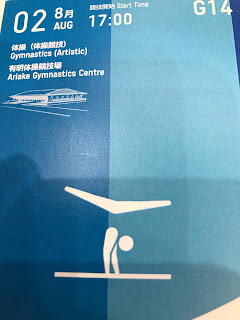I really thought that the postponed Tokyo Olympics, moved from 2020 to 2021, would be the most confusing thing I have to deal with in my job.
But as the saying goes, Beijing 2022 grabbed the microphone and said, "hold my beer."
The entire process of getting prepared to go to China has been an absolute cluster on my end. There was the entire process of trying to get them to take my money, which was exacerbated by their need to get the funds in Chinese currency instead of US (like the other three Olympic hosts have done), then the addition of purpose codes that were never relayed to us and the like.
But, as my last blog post said, that was taken care of, finally and my hotel is there and waiting for me when I arrive in Beijing.
Or, that is, if I arrive in Beijing.
Getting there, as referenced in a previous blog post is proving more and more difficult. The representative from Cathay Pacific was in regular communication for a few weeks as we tried to work out a schedule that worked for my timeframe and with the new "temporary" flights that we are being asked to use to arrive in and depart from China. However, it's been pretty quiet on the airline front the last week-plus and I am starting to get concerned about my flights. The last I e-mailed with the representative, it was looking like I would have to book a flight from Boston to San Francisco and then a flight from New York to Boston on the return trip. However, that still has not been confirmed.
The other issue that is becoming more and more difficult to navigate is the COVID-19 testing that is required before we board the plane to China. Beijing 2022 has told us that we need to take tests from a lab that is certified by the Chinese government. Of course, there are no labs anywhere near here that would allow me to do that. Tokyo allowed us to use at-home tests, but that is evidently not an option here. I spent a few hours today doing research about what tests we need and who can administer those tests.
I found out what I need to do is to get a testing location approved by Beijing 2022 and of course, that will not be an easy process I am sure. I have found a location in Manchester that does the necessary tests, but I have to submit all their information to Beijing 2022 and get them approved to administer the tests for me. The good news is, this company regularly does COVID testing for people who are traveling, so they know what is required and that is incredibly helpful. Hopefully, I can get them approved. Otherwise, I am not sure what I will have to do.
Tokyo was really a lot of frustration leading up to the rescheduled games. Communication was difficult and there were so many things that needed to be done. Beijing has brought that frustration too, though I have had better luck communicating with folks in Beijing than I had with those in Tokyo. I can't be 100 percent sure I'll be in Beijing in less than 50 days. But that does remain the goal.
On an unrelated, but still related, note, there was a pretty cool social media post from Paris 2024, the host of the next Summer Olympics. They announced that the Opening Ceremonies were going to be quite different in July 2024. The athletes will be riding through the ceremonies on boats on the Seine. The pictures they provided were pretty impressive and the goal is to get as many people involved in the ceremonies as possible, including spectators lining the riverbanks and bridges. I must say, this seems pretty awesome and I am intrigued.
Now, the process to apply for credentials for Paris has not even opened yet and I still don't know if that' something I want to do, but this new announcement is a point on the side of going in 2024.
Of course, I feel like I'm closer to getting to Paris than I am to getting to Beijing. And that's frustrating.
This photo, from thenewsmarket.com, envisions what the Olympic Opening Ceremonies might be like in Paris 2024 as the athlete parade makes its way down the Seine.




















